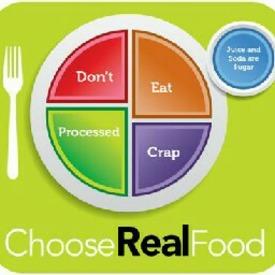Exercise calorie burn--use it up?

jbibas
Posts: 6 Member
I am trying to lose weight, and am tracking my calories and exercise with MFP; I'm very happy with the program. I use a Polar Fit 4 watch to track my calorie burn during my workouts (intense cardio 5 days a week, plus strength training 2 of those days in addition). I've been adding it to my exercise log and logging the calories burned according to the watch.
I've lost 7 pounds in the last month, and have a lot of weight left to lose, and I'll admit to a bit of impatience.
My question is this: should I be eating all those extra calories every day? I'm shooting for a 500 calorie burn during a workout, and often exceeding it. My base calorie intake is set for 1600 calories, so I often have a "budget" in the 2000-2300 range. I try to stay under 2000 but on the days that I go over (even if I stay under "budget"), I gain a pound or two. Immediately/overnight. It seems a bit strange to have to calibrate my diet so precisely on a daily basis.
Just wondering if anyone has any thoughts about this.
I've lost 7 pounds in the last month, and have a lot of weight left to lose, and I'll admit to a bit of impatience.
My question is this: should I be eating all those extra calories every day? I'm shooting for a 500 calorie burn during a workout, and often exceeding it. My base calorie intake is set for 1600 calories, so I often have a "budget" in the 2000-2300 range. I try to stay under 2000 but on the days that I go over (even if I stay under "budget"), I gain a pound or two. Immediately/overnight. It seems a bit strange to have to calibrate my diet so precisely on a daily basis.
Just wondering if anyone has any thoughts about this.
0
Replies
-
Yes you should, but there is some trial and error that goes with it. Many on here start at eating back 50-60% of them and adjust from there.
Overnight weight fluctuation (especially of only 1-2lbs) can be a myriad of things, but most often is standard waterweight fluctuations. Those could come from the workout you did the day before, how much sodium was in the food you ate, etc...
I can gain 4-6lbs overnight after a solid heavy lifting day.0 -
Well, losing slowly may help you stop from losing too much muscle rather than fat and also maybe help you to keep it off. Try to take it day by day. Are you hungry where you feel like you want those extra calories? I eat some or even all of mine back when I'm hungry. Or, I'll bank them if I know I have a big weekend ahead of me calorie-wise. Or, I use those calories as a cushion if I have to guess on how many calories were in what I ate that day. I'm still losing so that seems to be working for me. I'm also measuring using a HRM so because it's a little more accurate than using MFPs estimates it seems to work out okay.0
-
I don't eat back any exercise calories. You may want to read https://blog.myfitnesspal.com/ask-the-dietitian-should-i-eat-back-my-exercise-calories/0
-
Yes you should, but there is some trial and error that goes with it. Many on here start at eating back 50-60% of them and adjust from there.
Overnight weight fluctuation (especially of only 1-2lbs) can be a myriad of things, but most often is standard waterweight fluctuations. Those could come from the workout you did the day before, how much sodium was in the food you ate, etc...
I can gain 4-6lbs overnight after a solid heavy lifting day.
Alllllll of this. I can gain 5 pounds over night from an intense lifting session as well. I find I eat back only 50% of what my HRM says I burn and I have been losing since February.0 -
I do and I think you should if you burn a significant amount. And that is how MFP is set up to work. But you have to figure out how well you are actually measuring your burn. Start by eating back 50%.
BTW, don't use your HRM to measure calories burned while lifting or any non-cardio activity. That is not what they are meant for and will not give you anything close to accurate results.0 -
I decided not to eat mine back. Mainly because calorie burns are really all over the place when it comes to technology and apps. So I set MFP to inactive and eat those calories to maintain. Then I work out each day without adding the workouts to MFP. So somedays I may burn 300 cals, other days maybe 1000.0
-
I try not to eat mine back but when I'm hungry I eat some or all of them and I'm still losing. As long as overall my week shows a net total deficit to get me where I'm losing, I'm good.0
-
I eat half back because if I didn't I'd turn into the hulk0
-
I eat back half unless I'm having one of those days where I'm starving then I don't feel guilty eating more. But most of the time I eat half. I can't imagine not eating any back! My biggest motivation to workout is more food!0
-
Thanks for all the input! On days when I have a really big calorie burn (800-1000 calories) I tend not to be super hungry, but when on rest days, when I have a less intense burn (300-500 calories), I tend to be hungrier toward the end of the day. I guess I'll see how eating back 50% works out and go from there.0
-
If you tend to be super hungry on rest days, save your calories for those days... a weekly average is fine as long as it's still a deficit. I find if I work out in the morning, by the evening I'm usually really hungry but if I work out in the evening it might not hit me until the next day, which is often a rest day or at the very least, a less intense workout day.0
-
I ate all my exercise calories back, but not necessarily on the day I burned them. My average exercise calorie expenditure for the last three years has been about 525 calories a day, but it's punctuated by days that are total rest days, or just have a short walk, and days that have involved up to 9 hours of hard bicycling or hiking. When I have events coming up like the 6-hour bike ride I'll be doing on Saturday, I will eat well over my goal for a couple days before the event, usually come up quite short during the event itself (after cycling all day, I just don't feel like a 2,500-calorie dinner), and then catch up over the next several days. There was even one day when my net calories were -1024: I bicycled 112 miles in the hilltowns of western Massachusetts, burning 4284 calories, and only managed to force down 3200 calories that day, 1500 of them consumed during the ride.
I estimate calories burnt with Garmin HRM/GPS units that have proven to be pretty reliable for the kind of exercise I do (as in my weight loss matches what I expect). FWIW, the estimates from my Garmins are usually about only 50-60% of what MFP's database estimates for cycling, and about 80% of its estimates for running.
I lost about 65 pounds in the course of 23 months. For the first six months, I lost about 1.1 pounds a week (so a daily deficit of around 550 calories). The next six months went at about 0.75 pounds a week, then about 0.5 pounds a week for a while, and I lost the last ten pounds a little more slowly. Since I was being fairly active, I didn't want to eat too little and not have the energy for endurance events. If I hadn't eaten back the average of 525 calories a day, I would have lost an additional pound a week, but I would have had a lot less energy, I would have lost proportionally more muscle mass, and I would have been one ornery SOB.0
This discussion has been closed.
Categories
- All Categories
- 1.4M Health, Wellness and Goals
- 398.1K Introduce Yourself
- 44.7K Getting Started
- 261K Health and Weight Loss
- 176.4K Food and Nutrition
- 47.7K Recipes
- 233K Fitness and Exercise
- 462 Sleep, Mindfulness and Overall Wellness
- 6.5K Goal: Maintaining Weight
- 8.7K Goal: Gaining Weight and Body Building
- 153.5K Motivation and Support
- 8.4K Challenges
- 1.4K Debate Club
- 96.5K Chit-Chat
- 2.6K Fun and Games
- 4.8K MyFitnessPal Information
- 12 News and Announcements
- 21 MyFitnessPal Academy
- 1.5K Feature Suggestions and Ideas
- 3.2K MyFitnessPal Tech Support Questions










